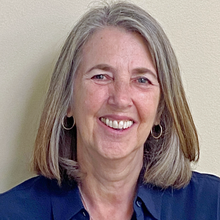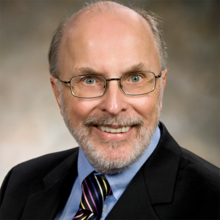

Excerpt from the Winter 2025 Extension
On February 5 WSU’s Office of Planned Giving and WSURA sponsored an informative session on estate planning led by WSU graduates Shon Anderson, president of Anderson Financial Strategies (left), and David Cusack, an attorney specializing in estate planning and estate administration (right).
Unfortunately, the weather was frightful, but many intrepid souls made their way to the Student Union anyway. Those who did were rewarded with a lot of useful information. The bottom line: if we already have an estate plan, we need to review it on a regular basis because things change. If we don’t have one, we need to get one.
This information was geared to a wide range of listeners, from those who don’t think they need a will (they do!) to those looking to deal with estates of more than $28 million (not us!). Both presenters recommended that we put together an estate plan, and that we rely on the advice of trusted professionals to make sure our wishes will be carried out and respected. This is important, as there are consequences of not having an estate plan: most seriously, under Ohio law, if you don’t have a plan, the state—not you—decides who gets your assets. For example, assets intended for children can end up being inherited by ex-spouses!
To make sure that our assets go to the people or organizations we want them to, and to make sure our wishes for our care as we age are respected, Shon and David provided a list of documents that we should prepare and review on a regular basis:
- A last will and testament outlines who inherits your assets and who will oversee your estate after you pass.
- A durable power of attorney (also known as a Financial POA) designates someone to handle your financial affairs on your behalf if you’re unable to do so yourself.
- A healthcare power of attorney (or healthcare proxy) appoints someone to make medical decisions on your behalf if you can’t communicate.
- A living will (or advance healthcare directive) records your preferences for medical treatment and life-support measures if you become severely ill or incapacitated.
- Beneficiary designations are forms that specify who receives assets such as life insurance, retirement accounts, or payable-on-death accounts.
- A letter of instruction that offers guidance to loved ones or executors, including passwords, final wishes, or other important details not covered in formal documents is optional but helpful.
Shon and David spent a fair amount of time discussing revokable trusts, which are legal entities that you can place assets into for easier management and distribution, often making probate (a court-supervised process to assign assets) unnecessary. (In probate, according to Bill Bigham, executive director of Planned Giving, a court determines that the will is legitimate and appoints an executor to carry out the will, inventory the estate’s assets, pay outstanding debts and taxes, and distribute the remaining assets. Probate can be complex, lengthy and expensive—and the estate and family financial and personal information becomes public, all good reasons to avoid it.) A will, estate plan, living trust, or other tools, then, can take the burden off the estate’s executor. A trust can give you more control over who gets your assets and when they’ll be distributed. It can also solve problems, such as how to deal with a second home in another state; without a trust, assets like that might have to go through probate in both states! However, Shon and David were very clear that a will is the better choice for many.
The presenters encouraged the attendees to consider charitable giving in their estate plans. If you don’t know where to start, you could contact your local council on aging, your community foundation, or talk with Bill Bigham, who would be happy to provide information whether or not you are interested in setting up a future gift for Wright State. In short, the presenters gave compelling reasons for creating an estate plan, even though most of us don’t want to think about it—as David pointed out, 60% of adults don’t have one. But we should!

